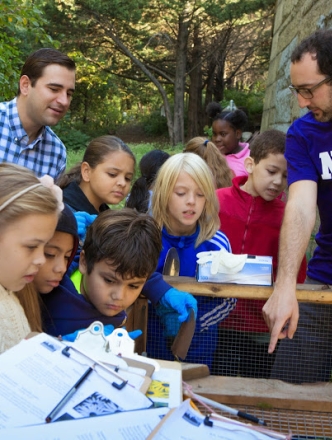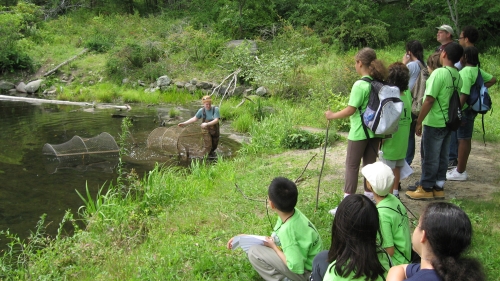Flexible Study
Class sizes are small, with the majority offered in the evenings to accommodate working students. Full-time students typically complete the program in three semesters. Part-time students may take up to two years to complete the program.
Elective courses within the program and across other departments allow you to tailor your program of study to your interests in areas such as environmental justice, curriculum design, teacher education, policy studies, ecology, youth education, and more.
Practical Learning Experiences
Through required fieldwork, curriculum projects, and other environmental initiatives, you’ll use New York City as your laboratory, gaining a unique urban experience in environmental education and making ample use of the city’s vast resources. You’ll get experience in sustainability education through our extensive network of internships – which often lead directly to jobs upon graduation – at leading organizations such as the American Museum of Natural History, Audubon New York, the Jane Goodall Institute, the High School of Environmental Studies, the New York City Department of Sanitation, and the United Nations.



